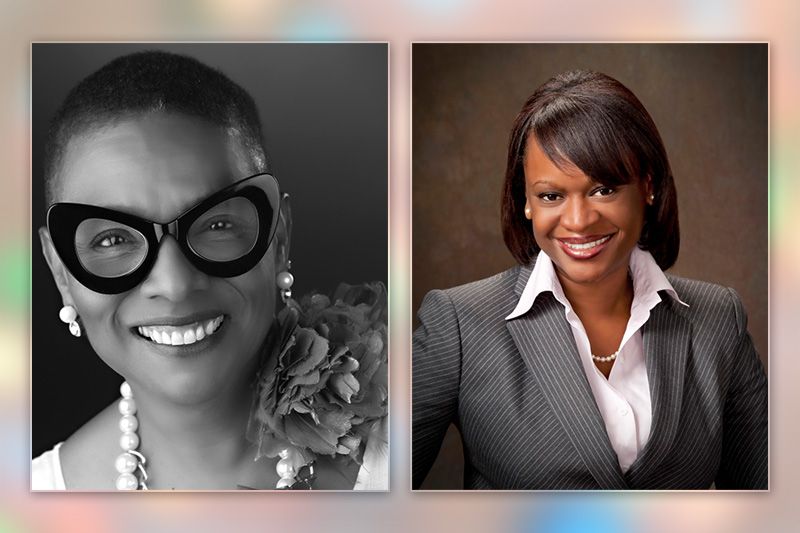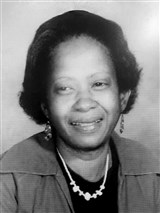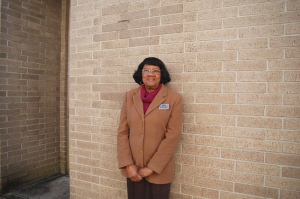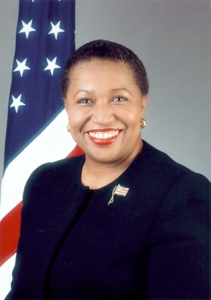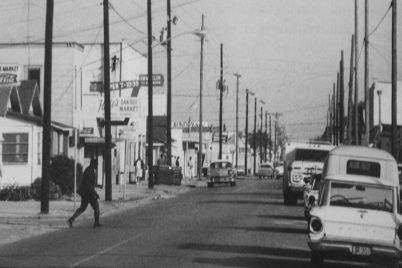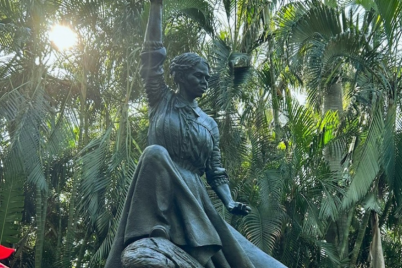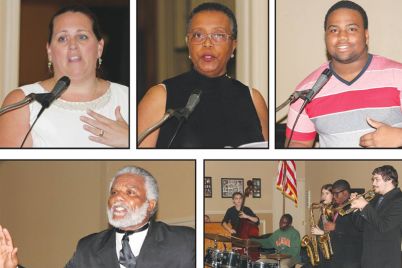Gwendolyn Reese, president of the African American Heritage Association of St. Petersburg and Deputy Mayor Dr. Kanika Tomalin
BY NICOLE SLAUGHTER GRAHAM, Staff Writer
ST. PETERSBURG — In celebration of Women’s History Month, March’s installment of Community Conversations — a partnership between the African American Heritage Association and Tombolo Books — centered on the contributions, power, and resilience of Black women.
Viewers were privileged to sit in on a conversation with Gwendolyn Reese, president of the African American Heritage Association of St. Petersburg, and Deputy Mayor Dr. Kanika Tomalin. The two women traded stories about their personal “sheroes” on the international, national and local levels.
Sharing the stories of women, and especially of Black women, said Reese, is essential because Black women have been historically left out of the narrative.
Tomalin began the conversation by acknowledging all of the unnamed women who made a difference, no matter the size of their impact.
“For me, the focus starts on those who made it through the Middle Passage — their bodies broken but their spirits untouched,” Tomalin said. “To mother an entire lineage and history here on this continent in a way that has produced such resilience and triumph.”
As they discussed women such as Queen Nzinga, the uncompromising monarch of 16th-century Mbundu, located in Central Africa, and Ida B. Wells, a founding member of the NAACP, the first person to start tracking racial terror lynchings, and a suffragist, one word resurfaced again and again: bold.
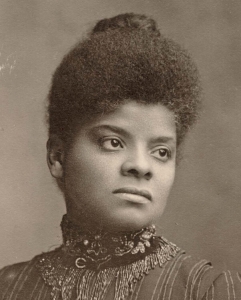
Ida B. Wells, a founding member of the NAACP, the first person to start tracking racial terror lynchings, and suffragist
The African-American women Reese and Tomalin spoke of, no matter if they were household, community names, or garnered national attention, possessed a certain fierceness that empowered those around them.
Reese said when going back to slavery, Sojourner Truth and Harriet Tubman are names that are mentioned frequently, so she brought up one that is not so well known, but her story is just as powerful: Ona Judge.
Judge, 20, was enslaved by President George Washington, who obtained her from his wife, Martha when they married. Once he became president and moved to New York, where the executive mansion once sat, he brought many of his slaves.
While in New York, she witnessed free Black people and decided she would no longer be enslaved. She boarded a ship to New Hampshire and lived out her days in freedom; however, not without Washington trying to capture her time and time again.
Reese also named one of her junior high educators, a civics instructor named Rubye Wysinger, to whom she credits her extensive knowledge of how government operates. More than just an educator, Reese said, Wiesinger was an influence and a mentor to all Black students in her generation.
“Our teachers’ job didn’t stop in the classroom,” Reese recalled. “Their jobs [extended] into the neighborhoods and the communities.”
Emotional, Tomalin mentioned an educator that made a lasting impression on her and her family: Mayme Hodges. Hodges taught elementary school and was the first Black woman on Clearwater’s City Council.
Hodges was Tomalin’s father’s second-grade teacher. She guided him through a difficult time. Tomalin’s father was dealing with the separation of his parents, among other struggles.
“When she looked at him, she saw a brilliant boy who was capable of great things,” Tomalin said of Hodges. “She didn’t see the ways he was acting out. She took time with him, and mentored him, and worked with him. Really [she] changed the trajectory of my family’s lives.”
The two women also discussed literary greats such as Toni Morrison and Audre Lorde, and political figures such as Charlene Mitchell, who by running on the Communist ticket, became the first Black woman to run for president, and Barbara Jordan, the first Black woman elected to the Texas State Senate and the first Black Texan in Congress.
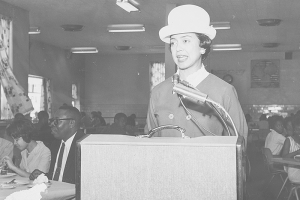
C. Bette Wimbish, St. Pete’s first Black vice mayor and the first African American elected to the city council
Tomalin and Reese both acknowledged local figure C. Bette Wimbish, St. Pete’s first Black vice mayor and the first African American elected to the city council. The lawyer, said Tomalin, changed the lives and paved the way for Black women both locally and statewide.
Reese took a moment to recognize the deputy mayor’s boldness and bravery in taking on such a public, community role. Tomalin is the city’s first Black woman to hold the position of deputy mayor and the second Black person to do so — her first cousin, Dr. Goliath Davis.
“Oftentimes when I’m with her, when I’m in her presence or even when I’m hearing her speak,” Reese said, “I can see standing behind her and image of C. Bette Wimbish. I think what the deputy mayor is doing is in the footsteps and on the shoulders of C. Bette Wimbish.”
Another local elected official mentioned was Mary Brown, the first African American elected to the Pinellas County School Board. Reese found it applauding that it took until the 2005 for a Black person to get elected.
Other political figures mentioned included Shirley Chisholm, the first African-American woman elected to Congress and Carol Moseley Braun, the first Black woman elected to the Senate.
All of the women mentioned in the conversation harnessed their internal grit and forged a path for the women that would come beside them and after them. Reese and Tomalin acknowledged that these women did not come through the world without fault, but they rose above any and all challenges, and their resilience left a mark on communities large and small.
“Perfection is not a prerequisite to impact,” Tomalin said when speaking about musical great Billie Holiday, whose incredible career and far-reaching impact were often overshadowed by the messier parts of her life.
“So often we have hesitation about talking about the hard stories or the hard truths,” Tomalin continued. “It’s easy to tell the good stories, but in the fullness of who we are, we need to appreciate and be grateful for all of our stories and recognize that we are all so capable of impact.”
African Americans have been relegated to the sidelines of history or completely omitted, and what little of Black history is taught, women are left out because of the patriarchy and male-centric view in this society, which makes Wednesday night’s intergenerational conversation so essential.
“So it’s up to us – black women of different generations – to join together in understanding the importance and significance in sharing these stories,” Reese asserted.
To reach Nicole Slaughter Graham, email nslaughtergraham@theweeklychallenger.com

